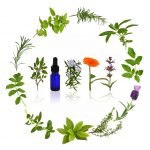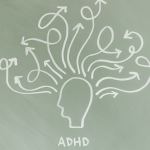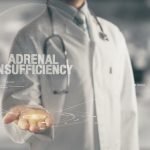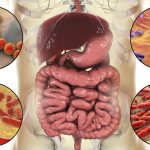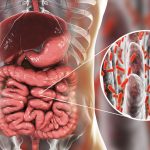Low Omega Biomarker and Cardio Risk
NODE SMITH, ND
People who are genetically more likely to suffer from cardiovascular diseases may benefit from boosting a biomarker found in fish oils, a new study suggests.
In a genetic study in 1,886 Asian Indians published in PLOS ONE, scientists have identified the first evidence for the role of adiponectin, an obesity-related biomarker, in the association between a genetic variation called omentin and cardiometabolic health.
The team, led by Professor Vimal Karani from the University of Reading, observed that the role of adiponectin was linked to cardiovascular disease markers that were independent of common and central obesity among the Asian Indian population.
Prof Vimal Karani, Professor of Nutrigenetics and Nutrigenomics at the University of Reading said, “This is an important insight into one way that people who are not obese may develop heart disease, through low concentrations of a biomarker in the body called adiponectin. It may also demonstrate why certain lifestyle factors such as consumption of oily fish and regular exercise are so important for warding off the risk of heart disease.
“We studied Asian Indian populations who have a particular genetic risk of developing heart disease and did see that the majority of our participants were already cardiometabolically unhealthy. However, the omentin genetic variation that we studied is prevalent across diverse ethnic groups and warrants further work to see whether omentin is playing a role in heart disease risk in other groups too.”
The Asian Indian population who took part in the study were found to have a significant association between low levels of adiponectin and cardiovascular disease, even after adjusting for factors normally linked with heart disease.
Participants in the study were screened and assessed based on a range of cardiovascular measures including BMI, fasting blood sugar and cholesterol, and more than 80% of those who took part being assessed as cardiometabolically unhealthy.
Further analysis showed that those with genetic variation in omentin production also had less of the biomarker adiponectin in their body.
Professor Vimal Karani said, “What we can see clearly from the observations is that there is a three-stage process going on where the omentin gene difference is contributing to the low biomarker adiponectin, which in turn seems to be linked to worse outcomes and risk of heart disease.
“The omentin gene itself works to produce a protein in the body that has been shown to have anti-inflammatory and cardioprotective effects, and variations in the omentin gene have previously linked to cardiometabolic diseases. The findings suggests that people can develop cardiometabolic diseases due to this specific omentin genetic risk, if they have low levels the biomarker adiponectin.”
1. Karani Santhanakrishnan Vimaleswaran, Dhanasekaran Bodhini, Juanjie Jiang, Kandaswamy Ramya, Deepa Mohan, Coimbatore Subramanian Shanthi Rani, Nagarajan Lakshmipriya, Vasudevan Sudha, Rajendra Pradeepa, Ranjit Mohan Anjana, Viswanathan Mohan, Venkatesan Radha. Circulating adiponectin mediates the association between omentin gene polymorphism and cardiometabolic health in Asian Indians. PLOS ONE, 2021; 16 (5): e0238555 DOI: 10.1371/journal.pone.0238555

Node Smith, ND, is a naturopathic physician in Humboldt, Saskatchewan and associate editor and continuing education director for NDNR. His mission is serving relationships that support the process of transformation, and that ultimately lead to healthier people, businesses and communities. His primary therapeutic tools include counselling, homeopathy, diet and the use of cold water combined with exercise. Node considers health to be a reflection of the relationships a person or a business has with themselves, with God and with those around them. In order to cure disease and to heal, these relationships must be specifically considered. Node has worked intimately with many groups and organizations within the naturopathic profession, and helped found the non-profit, Association for Naturopathic Revitalization (ANR), which works to promote and facilitate experiential education in vitalism.




